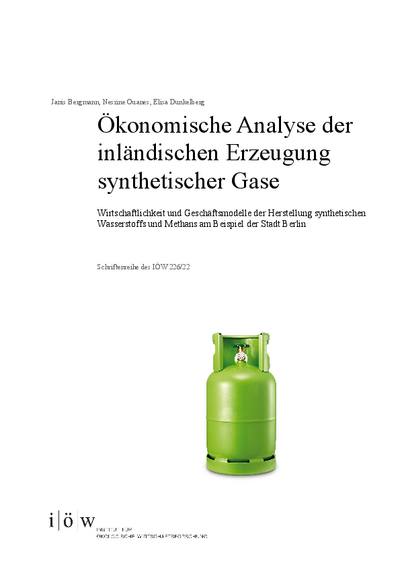Economic analysis of a domestic production of synthetic gases Economic efficiency and business models for a production of synthetic hydrogen and methane in Berlin
Gaseous energy sources will play a crucial role in Germany's future energy system. Unlike today, synthetic gases will have to cover a large part of the demand for energy gases in the future to meet the goal of climate neutrality. Not least in light of the Ukraine war, which has brought the existing dependencies on the import of natural gas and the associated economic consequences to public attention, the question arises as to what extent domestic production of hydrogen and synthetic methane can take place economically and what role cities can play in the production of synthetic gases. On the one hand, in cities, there is often no direct connection to renewable energy plants. On the other hand, urban areas are characterized by diverse consumer structures and, above all, by process and material cycles, whose waste products can serve as input for the production of synthetic gases.
Using the city of Berlin as an example, this study examines which processes and under which conditions synthetic gases can be produced economically in cities, what possible business models look like, and how changed framework conditions can enable greater economic viability. The study focuses on four technologies: wastewater plasmalysis and polymer electrolyte membrane (PEM) electrolysis for hydrogen production as well as underground biological and chemical-catalytic methanation for the production of synthetic methane. The study shows, that under certain conditions, cities could already produce hydrogen today at competitive prices using both processes studied. In the case of synthetic methane, however, urban production is not (yet) worthwhile compared to imports from rural areas and from abroad.



